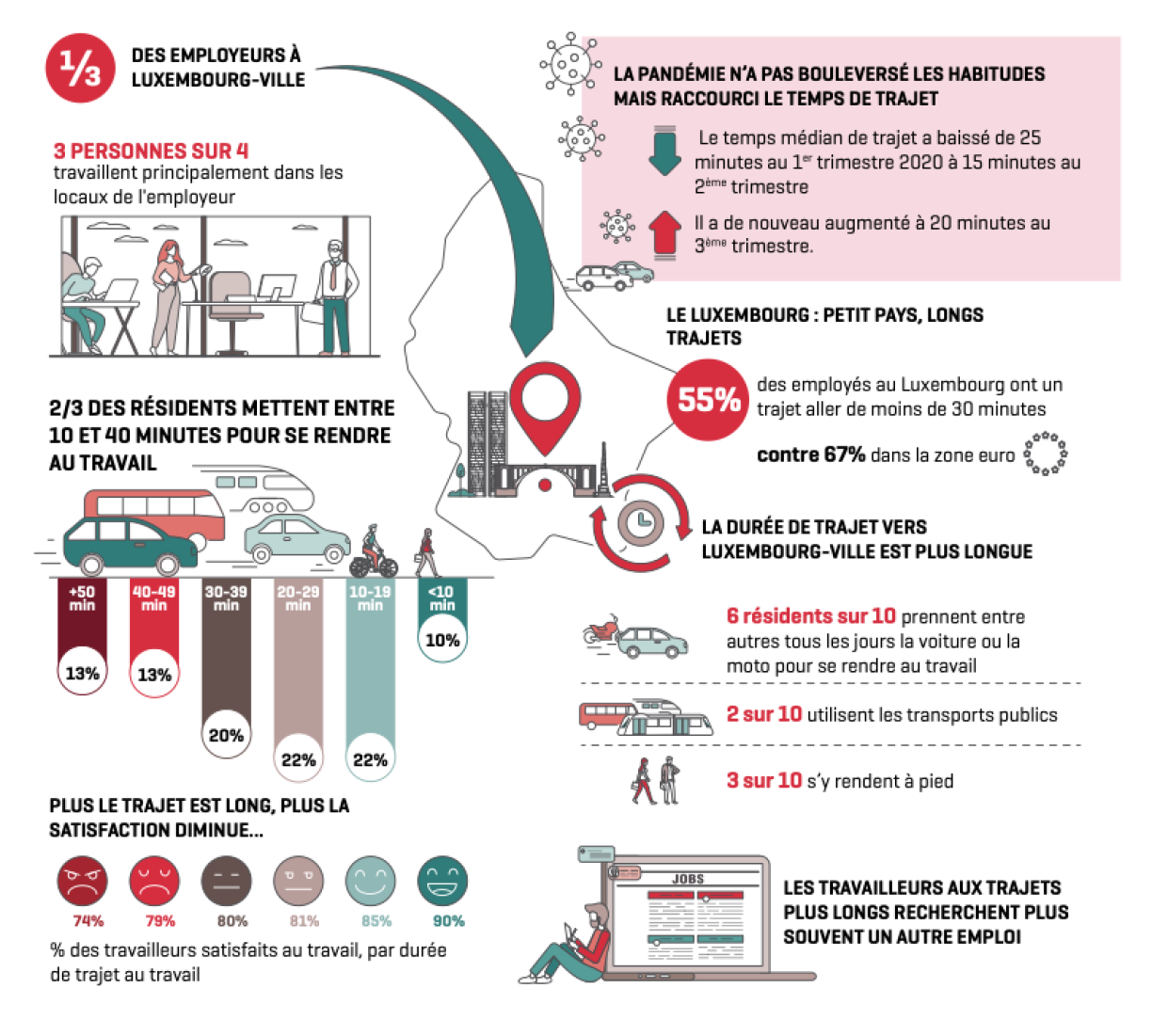
In Luxembourg, residents take an average of 25 minutes to get to their place of work. This is revealed by Statec’s latest study published on Friday. This average is only representative for a part of the population, since the journeys can range from 10 minutes to 50 minutes according to the Luxembourg institute.
The institute indicates that residents of the municipalities of Diekirch, Echternach, and Redange take the longest time to get to work (+-45 minutes). And for good reason, as a third of employers are based in Luxembourg City.
For the others, i.e. those who do not necessarily go to Luxembourg City to work, the situation remains the same: the residents of the above-mentioned municipalities are still those who take the longest time to reach their place of work (+- 30 minutes). Only the residents of the municipality of Clervaux have a comparable journey time.
And while there are no major disparities in travel time when age, gender, family situation, or level of education are taken into account, the Statec notes that nationality marks a difference between residents.
In fact, according to the institute, with an average travel time of 30 minutes, Portuguese residents spend the most time on the road. Those with the shortest travel time are Belgian and German residents (20 minutes), Statec indicates. They are closely followed by Luxembourgers and French residents (25 minutes).
Through this study, Statec was able to conclude that the pandemic and teleworking “without disrupting commuting time” had nevertheless shortened the average commuting time. The institute was also able to confirm that the car remains by far the preferred means of transport for residents and that Luxembourg is among the countries in the euro zone with the longest commutes.
Good to know: studies show that the longer the journey between home and work, the lower the satisfaction. This factor often leads residents to look for another job, according to Statec.